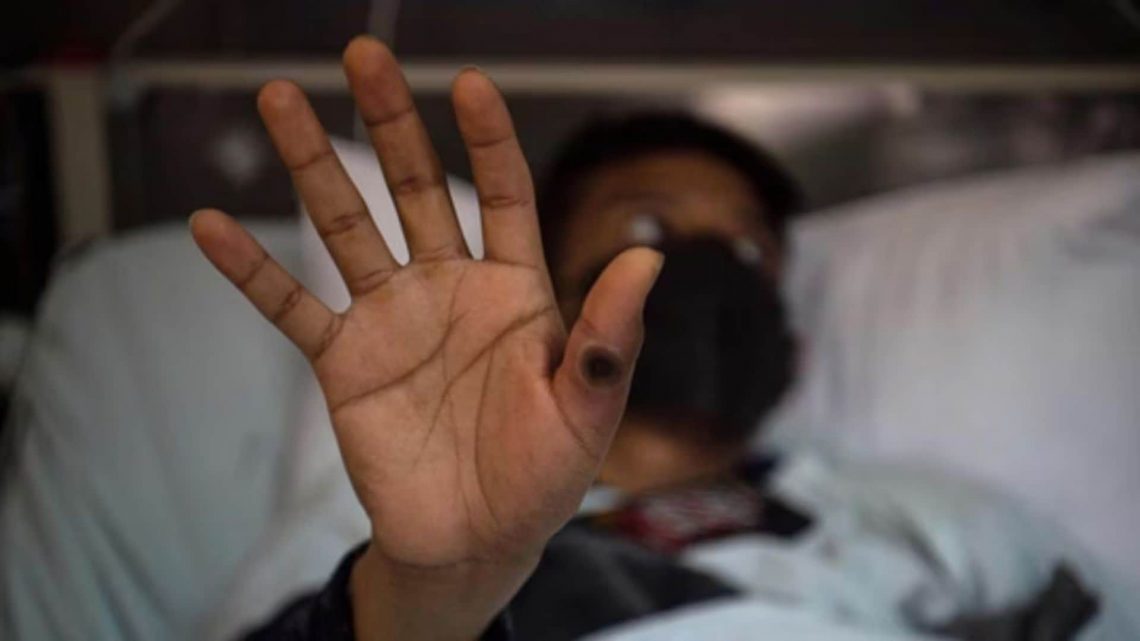The Union Health Ministry has rolled out new advisories to states and union territories, urging them to enforce strict infection prevention and control measures to stem the spread of mpox.
This announcement comes in light of India confirming its second case of the deadly virus in Kerala, where a 26-year-old man, who had recently returned from the UAE, tested positive, according to The New Indian Express.
Just last week, another case emerged when a 38-year-old man, also back from the UAE, was found to be infected with the more virulent and transmissible Clade 1B strain of mpox, prompting authorities to enhance their response efforts.
The Health Ministry has noted that India is now the third non-African country to report a Clade 1B mpox infection, which had previously only been detected outside the Democratic Republic of Congo in Sweden and Thailand.
On Thursday, Health Secretary Apurva Chandra underscored the urgent need to implement essential public health measures to mitigate the disease’s spread across the nation.
In response to the situation, here are the latest dos and don’ts issued by the Centre.
Dos
1. Increase public awareness: The health ministry has directed states to engage in activities that educate communities about mpox, including its transmission methods, the importance of timely reporting, and essential preventive measures.
According to the World Health Organization, mpox is a viral illness caused by the monkeypox virus, a member of the Orthopoxvirus genus. It can spread through close contact with an infected person, contaminated materials, or infected animals.
2. Isolate suspected cases: Immediate isolation of any suspected mpox cases is vital. Authorities stress that strict infection prevention and control measures should be implemented without delay.
Common symptoms of mpox are a skin rash or mucosal lesions which can last 2–4 weeks accompanied by fever, headache, muscle aches, back pain, low energy and swollen lymph nodes.
3. Build more isolation facilities: The health ministry has urged hospitals to establish adequate isolation facilities for both suspected and confirmed mpox cases, ensuring that proper logistics are in place and that staff are trained to manage these situations effectively.
Earlier, the Delhi government had instructed three of its hospitals—Lok Nayak Hospital, Guru Teg Bahadur (GTB) Hospital, and Dr. Baba Saheb Ambedkar Hospital—to set up isolation rooms specifically for managing mpox cases.
Additionally, states like Tamil Nadu, Telangana, and Maharashtra have also implemented isolation facilities in both government-run and some private hospitals. Senior health officials are encouraged to regularly evaluate public health preparedness at both the state and district levels.
4. Symptomatic treatment: The health ministry has instructed states to adhere to current treatment guidelines, which emphasise symptomatic management for those affected.
It is important to note that there is no specific treatment for mpox. Instead, disease management focuses on providing symptomatic relief, such as addressing rashes, managing pain, and preventing complications, according to the WHO.
5. Send suspected samples for testing: States have been directed to ensure that samples from suspected mpox cases are sent to designated laboratories for testing. For confirmed positive cases, samples should be forwarded to the ICMR-NIV for genome sequencing to identify the clade.
6. Boost diagnostic capacities: The Centre has called on states to utilise ICMR-approved laboratories and PCR kits to facilitate early detection and containment of the virus.
The health ministry’s guidelines noted that robust diagnostic testing capabilities are already available, with 36 ICMR-supported labs across the country and three commercial
mpox PCR kits validated by ICMR and approved by CDSCO.
“By implementing the above measures, we can safeguard public health and reduce the impact of the mpox outbreak. The Ministry will continue to monitor the situation closely…” it added.
Don’ts
1. Avoid panic: The Centre asked states and UTs to clearly communicate with public to prevent widespread panic and ensure understanding of preventive measures. “It is crucial to prevent any panic among the public,” the advisory stated.
2. Report cases without delay: Immediate reporting of suspected mpox cases is vital to prevent further spread; delays could worsen the situation.
3. Don’t ignore mild cases: All suspected cases, including mild ones, should be tested and isolated if necessary to minimise unnoticed transmission.
4. Avoid overcrowding: The health advisory has asked to only admit symptomatic patients or those requiring isolation to avoid straining healthcare facilities.
With input from agencies
Link to article –
Mpox in India: What are the new dos and dont’s issued by the Centre?

